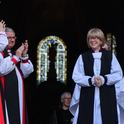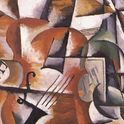The prime minister has called the decision to remove the lyrics from renditions of “Rule, Britannia!” and “Land of Hope and Glory” at Last Night of the Proms “wet” and a “cringing embarrassment.” On the other side, campaigners like professor Kehinde Andrews claim the songs are “racist propaganda,” and performers such as Lily Allen have called for “Rule, Britannia!” to be banned. A particularly thorny point is the reference to slaves in the song, placing the 18th-century anthem in the middle of 21st-century culture wars about Britain’s colonial past.
Rule, Britannia!” first appeared as an ode in Alfred: A Masque by James Thomson and David Mallet, presented to the Prince and Princess of Wales in 1740 and later set to music by Thomas Arne. This is not the first time that the song has been used as a focus for contemporary arguments regarding British identity. Yet the current controversy stems entirely from its inclusion in the phenomenon of Last Night of the Proms. Understanding the history of that event is instructive.
The song’s inclusion is due to Malcolm Sargent, who became chief conductor when the events returned to the BBC after World War II. According to his biographer, Charles Reid, Sargent brought a new “gloss and briskness” to Proms performances and by 1953 he had fixed the programme for the Last Night.
The Last Night had been an occasion to wind down the Proms season since the time of Henry Wood. Sargent’s formula was to provide a series of popular classics followed by several patriotic songs, including Wood’s Fantasia on British Sea Songs, Elgar’s “Pomp and Circumstance” (including “Land of Hope and Glory”), Arne’s “Rule, Britannia!”, Parry’s “Jerusalem,” and the national anthem, as well as a speech by the conductor. The speech had been introduced by Woods in 1941 when the future of the Proms was in jeopardy, but it was with Sargent that the speech itself became a more flamboyant affair. As Sargent remarked: “if people can get as enthusiastic about music as about football... that is all to the good.” He also encouraged that other aspect of post-war populism, the flag-waving that had made its debut at the performance of “Land of Hope and Glory” in 1945, which was treated by the audience as a victory celebration marking the end of the War.
While Last Night of the Proms seems preserved in aspic foraged from Fortnum & Mason, we should not forget how innovative it appeared in 1953. The original intention had been to replace Wood’s Fantasia, which proved unpopular. When that was reinstated, the Times ran with the headline: “Tradition Triumphs.” What made Last Night different this time was the intervention of television. Sargent’s soubriquet as “Flash Harry” recognised his own importance to the popularity of the event, and though parts had first been televised in 1947, Queen Elizabeth’s coronation had demonstrated just how large the audience could be. Had Sargent experimented with his programme in 1949, or 1950, it is likely that Last Night would have been much more mutable. As it was, the performances of 1953 seemed a winning formula.
When the BBC attempted to change that formula, it was Sargent and his vocal supporters who were defenders of the newly invented tradition. The chance to modernise the proceedings came only when Sargent retired and was replaced by Colin Davies. For the 1969 celebrations, the Controller of the Proms, William Glock, removed both “Land of Hope and Glory” and “Rule, Britannia!”—but the outrage led to both being reinstated. As the BBC commentator observed, the “Bring Back Britannia” brigade had not realised it was included as part of Wood’s Fantasia and so could be performed as an encore for the evening to even more rapturous applause.
Glock’s focus on “Rule, Britannia!” and “Land of Hope and Glory” shows the tensions that were developing in the quarter century after the end of the War, with increasing numbers of the public becoming openly agitated by calls for Britannia to “rule the waves.” Yet the only subsequent moment when the format of the Last Night changed was after 9/11: “Jerusalem” remained but, aside from the national anthem (which was joined by the American anthem), the other, more imperial tributes were replaced by Beethoven’s Symphony No. 9 in D Minor, Michael Tippett’s A Child of Our Time and Samuel Barber’s Adagio for Strings, after which the world did not end.
What of the song itself? Thomson and Arne’s original presents a complication for any simple notions of patriotism. Frederick, Prince of Wales, had gathered an opposition “court” around him during the late 1730s and, in 1740, helped thwart Robert Walpole so that the prime minister was unable to form a stable government and resigned in 1742. Thomson in particular allied himself with the “loyal Opposition,” and his emphasis on Britons was also a reminder that he—as a Scot—believed more in the Union than English Walpole, under whose corruption British forces had suffered repeated depredations from the Spanish, which had led to war in 1739.
Arne’s score transformed into an oratorio and then an opera, but Alfred has only rarely been performed in its entirety since the 18th century. A congregation of accidents in the post-war period contributed to a song from an obscure libretto becoming key to definitions of British identity. Thomson himself hoped for a unifying Britishness that would transcend English or Scots, but as literary historians such as Edward Holberton have shown, this unity depended upon Britain retaining the asiento contract to provide slaves to the Spanish empire, just as it also required a pro-war opposition that detested the prime minister of the day.
The surprising history of “Rule, Britannia!” and Last Night of the Proms
This is not the first time controversy has erupted
August 26, 2020

Photo: Guy Bell/PA Wire











